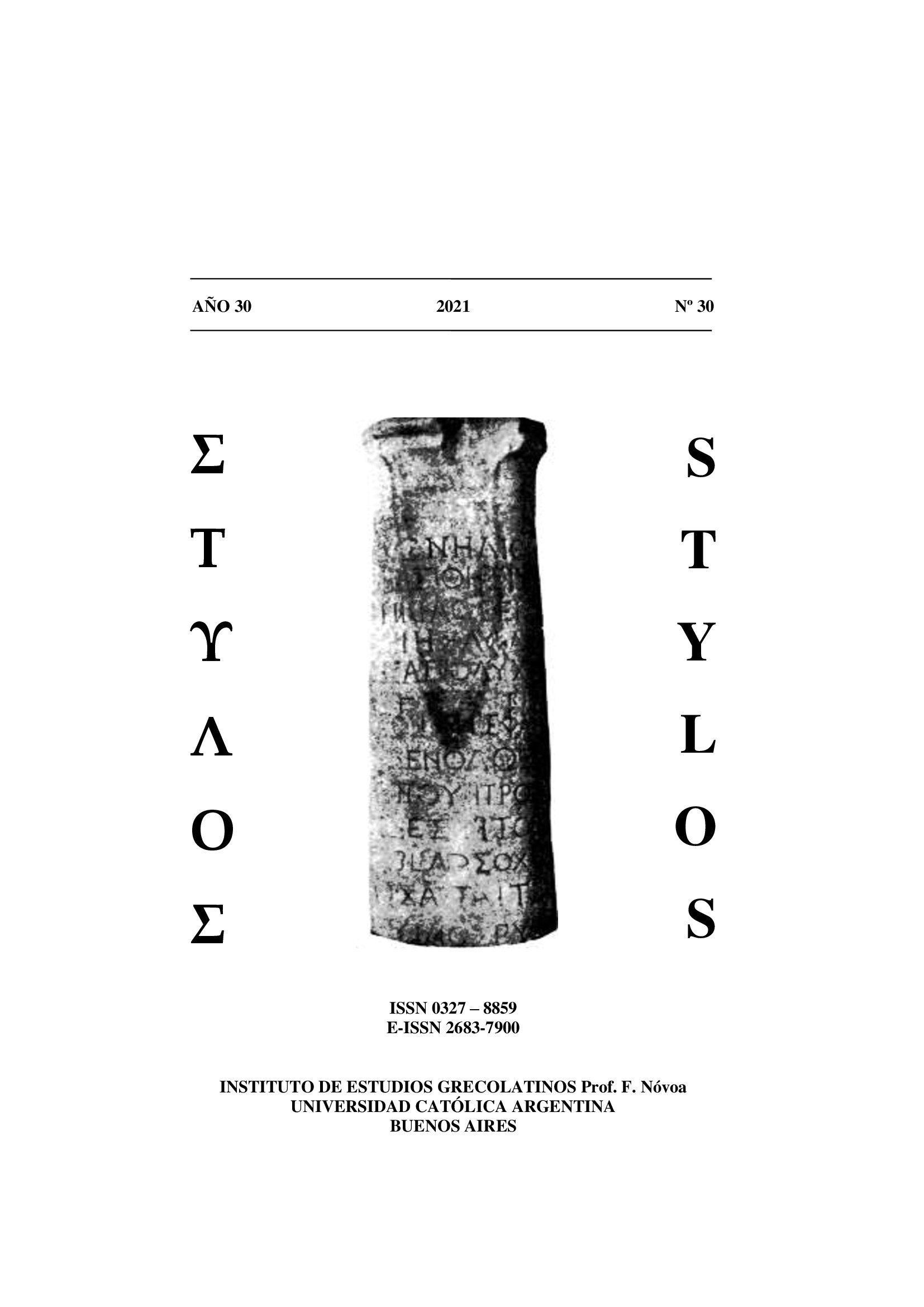LA INFLUENCIA PLATÓNICA EN LA CONCEPCIÓN ARISTOTÉLICA DEL “SÍ MISMO” EN EL PROTRÉPTICO Y EN LA ÉTICA NICOMAQUEA
DOI:
https://doi.org/10.46553/sty.30.30.2021.p124-136Keywords:
Plato – Aristotle – Self – Soul.Abstract
Despite the palpable differences in Platonic and Aristotelian anthropologies, both philosophers affirm the identity of the self with noûs. The purpose of this paper is to show the Platonic influence on the Aristotelian work on the notion of self, both in his Academic period and in his later thought. Broadly speaking, the master developed two different conceptions of the self: in the Alcibiades major he clearly identifies the self with the intellect, while in the Republic he identifies it with each part of the soul and with the totality of the soul governed by a specific part. The disciple partially reproduces the first Platonic conception of the "self" in the Protrepticus, while he adopts the central lines of the second in Nicomachean Ethics IX. 8-9. Although the Stagirite distances himself from his master in some nuances, he follows the Platonic ethical-anthropological ideal in maintaining that the realization of the contemplative life presupposes that the intellect governs human behavior.
Downloads
References
ANNAS, J., “Self love in Aristotle”, The Southern Journal of Philosophy, 1981 72: 1-18.
ANNAS, J., “Self-Knowledge in early Plato”, 111-138. En: D. O`Meara (ed.) Platonic Investigations, Cambridge University Press, 1985.
BIEDA, E., “Unidad y multiplicidad del alma en la República de Platón”, Quaderni Urbinati di Cultura Classica. 2015 138: 89-116.
BISS, M., “Aristotle on Friendship and Self-knowledge: The Friend Be-yond the Mirror”, History of Philosophy Quarterly, 2011 28: 125-140.
CAPPELLETTI, A. J., “El Alcibíades mayor y el núcleo de la antropología de Platón. En: Sobre tres diálogos menores de Platón, 9-36, Ve-nezuela: Equinoccio, 1987.
COOPER, J. M., “Aristotle on Friendship”, 301.340. En: A. O. Rorty (ed.), Essays on Aristotle's Ethics, Los Angeles: University of Cal-ifornia Press, 1980.
FIERRO, M. A., “La deducción de las partes del alma de un conflicto de deseos en República IV”, THÉMATA, 2007 38: 61-75.
FERRARI, G.R.F., “The three part soul”, 165-201. En: Ferrari, G.R.F. (ed.), The Cambridge companion to Plato’s Republic, Cambridge: Cambridge University Press, 2007.
IRRERA, E., “Other Selves in Action Similarity and Complementarity be-tween Virtuous Persons in Aristotle’s Theory of Friendship”, Ma-ia, 2017 69: 47-67.
MAJITHIA, R., “Self and Soul in Aristotle”, Trascendent Philosophy, 2004 5: 181-206
KAHN, C., “Aristotle and Altruism”, Mind, 1981: 90: 20–40.
RIDER, B. A., “Self-Care, Self-Knowledge, and Politics in the Alcibiades I”, Epoché, 2011 15: 395-413.
ROBINSON, R., “Plato’s separation of reason from desire”, Phronesis 1971 16: 38-48.
SEGGIARO, C. M., La concepción de filosofía en el Protréptico de Aristó-teles. Su posible influencia platónica, Buenos Aires: Teseopress, 2019.
SIEWERT, C., “Plato’s division of reason and appetite”, History of phi-losophy quarterly 2001 18: 329-352.
STALLEY, R.F., “Plato’s argument for the division of the reasoning and appetitive elements within the soul”, Phronesis 1975: 20: 110-128.
STERN-GILLET, S., Aristotle’s Philosophy of Friendship, Albany: SUNY, 1995.
TABAKIAN, D. A., "Recepción y reformulación de la concepción plató-nica del "sí mismo" en la Ética Nicomaquea de Aristóteles”, 191-214. En: Magnavacca, S., Santa Cruz, M. I., Soares, L. (eds.), Co-nocerse, cuidar de sí, cuidar del otro. Reflexiones antiguas y me-dievales, Buenos Aires: Miño y Dávila, 2017.
Downloads
Published
How to Cite
Issue
Section
License






